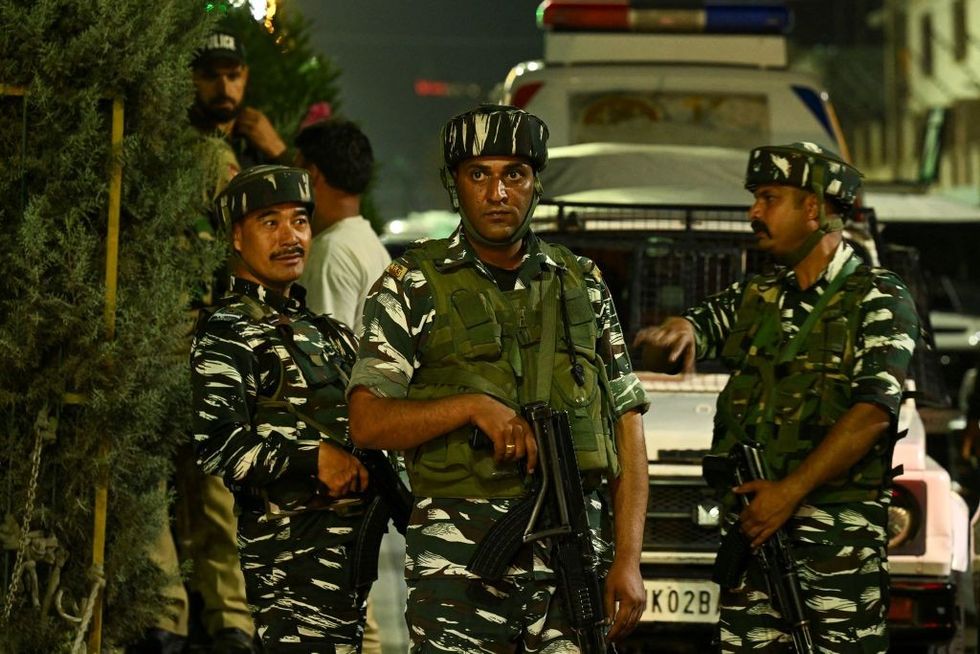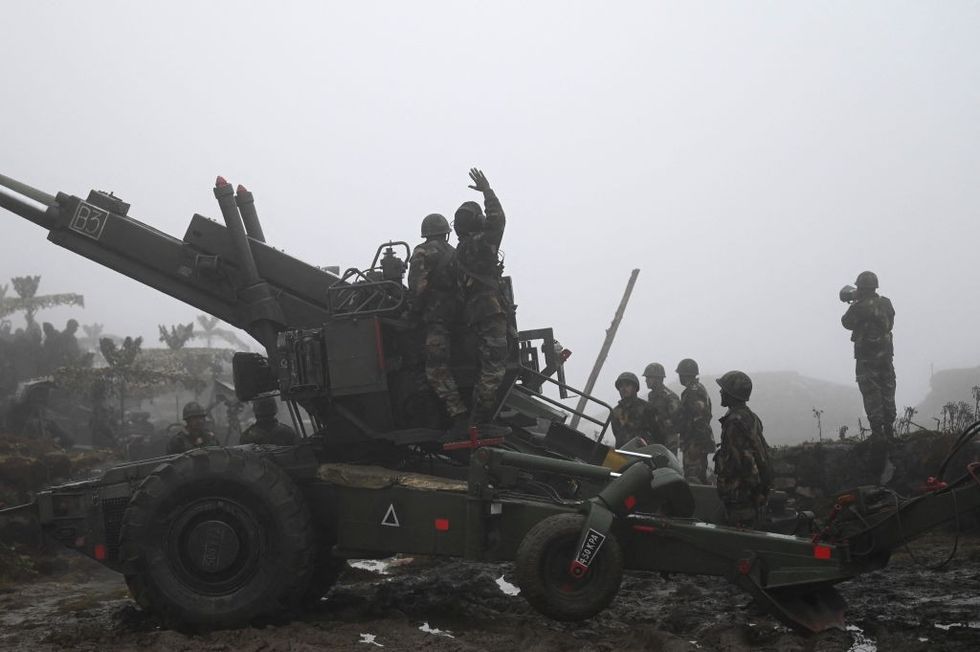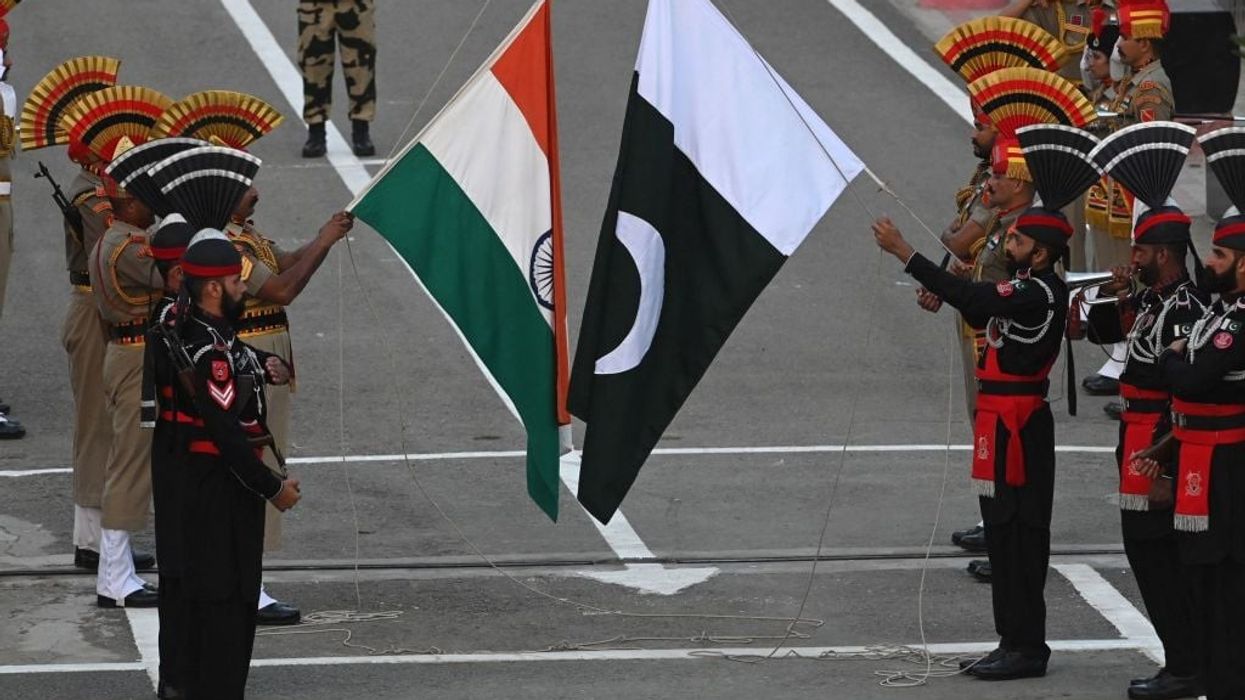TENSIONS among nuclear powers, mainly in Asia, carry the risk of escalating into major conventional wars, a new survey cautioned.
Significant Asian conflicts, such as in Kashmir and Afghanistan, have seen reduced violence since a ceasefire began in February 2021, said the Armed Conflict Survey 2023 by the London-based geopolitics thinktank, the International Institute for Strategic Studies (IISS).
Its survey, published earlier this month, cautioned against the risk of escalation of US-China tensions in the Taiwan Strait; India-Pakistan along the Line of Control (LoC) and India-China along the Actual Line of Control.
The report, which tracked political, military, and humanitarian dimensions of active armed conflicts globally from May 2022 to June 2023, also noted a resurgence of terrorism in Pakistan, which has repercussions on its ties with Afghanistan.
“South and southeast Asia host a number of long-standing armed conflicts. Three of them – the war in Afghanistan, Pakistan’s struggle with ethnic insurgency and anti-state terrorist groups, and the dispute over Kashmir – have a significant impact on regional and global security,” the survey said.
It added, “This is primarily due to the transnational actors involved in these conflicts and the potential of the Kashmir dispute to escalate into a conventional war between India and Pakistan.”
It, however, noted that tensions along the LoC between the two countries have abated since a ceasefire took effect in February 2021, leading to a 38 per cent decline in conflict-related fatalities during the period compared to last year.
“This relative calm has allowed Indian forces to upgrade their border defences and surveillance, leading to a decline in border crossings and violence by militants in Indian-administered Jammu and Kashmir,” the report said.

During 2022, there were 17 attacks against non-locals, compared to six in 2021, indicating growing attempts to deter non-locals from settling and claiming domicile status in Jammu and Kashmir. This trend is likely to increase with the announcement of assembly elections in the region, the report added.
It said an increase in more protracted conflicts is being driven by third-party states and armed groups.
In Pakistani Kashmir, militants have shifted towards employing drones to move arms across the LoC, the report said.
While these incidents peaked at 47 reported occurrences in 2021, there were at least 15 reported incidents of drone incursions during the period under review.
Pakistan’s strategy of supporting Kashmiri insurgents seems to have increasingly focused on sponsoring ‘indigenous’ Kashmiri armed groups, such as The Resistance Front (TRF), formed after the abrogation of Article 370 in 2019 by the government of India’s prime minister Narendra Modi, the survey noted.
Researchers said, “This likely reflects the severe constraints faced by the Pakistani state during the reporting period. Firstly, Pakistan was under pressure to act against armed groups and their sources of finance since being placed on the Financial Action Task Force ‘grey list’ in 2018, which forced it to adopt a less explicit approach to supporting cross-border infiltration. Secondly, it faced instability on multiple fronts, including economic crises, massive flooding, political turmoil, deteriorating relations with the Afghan Taliban and a resurgence of internal Tehrik-e-Taliban Pakistan activity. These overlapping crises are likely to contain Pakistani efforts to support militant infiltrations.”
The upcoming general elections in India and Pakistan could lead to border posturing and provocations, it noted.
Though there are conflicts in the central heartlands and northeastern peripheries of India, the government has given more importance to the Kashmir conflict, the report stated. The report mentioned conflicts in Nagaland, Assam, and Manipur, adding that the situation remains volatile in Manipur.
“There were 84 battles in Manipur during May (36) and June (48) alone, with each month witnessing more battles than any one year in Manipur since 2016. Despite government curfews and the increased deployment of security forces, the situation remains volatile,” it said.

Maoist-related conflicts in India decreased during the period, with particularly high levels of surrenders in states such as Odisha.
According to the IISS report, in Pakistan, the risks represented by the Tehreek-e-Taliban Pakistan (TTP) to regional security and the country’s security and political stability have grown as the group has increased its activities in the region.
“Pakistan’s deep political crisis and upcoming elections will make it difficult to reach a consensus around implementing an effective counter-terrorist strategy.
“The TTP’s ability to retain momentum as a top-tier armed group in Afghanistan and Pakistan will depend on whether Afghanistan continues to provide a safe haven for the group, as well as TPP and army dynamics in Pakistan,” the report said.
It noted that the TTP did not react to the mass political protests and local violence that broke out after former prime minister Imran Khan’s arrest by security forces in May 2023.
“This was despite prime minister Sharif drawing a derogatory parallel between Khan’s party and the TTP.
“Post-2021, Kabul is less reliant on ties with Pakistan, having developed relations with China, Pakistan’s strategic partner, as well as Iran, Qatar, and Turkiye.
“Concomitantly, China has emerged as a privileged partner for Pakistan due to a shared interest in regional stability and counter-terrorism, as well as a desire to prevent the TTP from targeting Chinese nationals and the China–Pakistan economic corridor, where Baloch insurgents and other terrorists already pose a threat.”
“Pakistan’s 2023 general electoral season will likely further complicate consensus-building on how to strategically manage the TTP and its activities.
“The TTP represents, once again, a clear security threat to Pakistan’s military and political leadership. This threat has become the most central issue in Pakistan–Afghanistan relations, given its significance for regional stability and the challenge it represents for trade, Afghan refugees, and people-to-people and infrastructure connectivity for land-locked Afghanistan.”
While observing the changes in US-China relations, the report said the election of a hawkish or right-wing Republican candidate like Donald Trump as president could further escalate tensions with China, especially regarding Taiwan, given his past policy positions and choice of advisers.
The outcome of Taiwan’s 2024 presidential elections may also influence China’s responses, particularly if the China-friendly opposition Kuomintang party comes into power, it pointed out.
The report also looked at whether China will be able to use its economic muscle in the Middle East to advance its interests – while blunting those of the US – as be a key question for early 2024.
“The Middle East will likely become an arena of intensified US-China competition in the years ahead, with significant consequences for the region’s conflicts,” it said.





